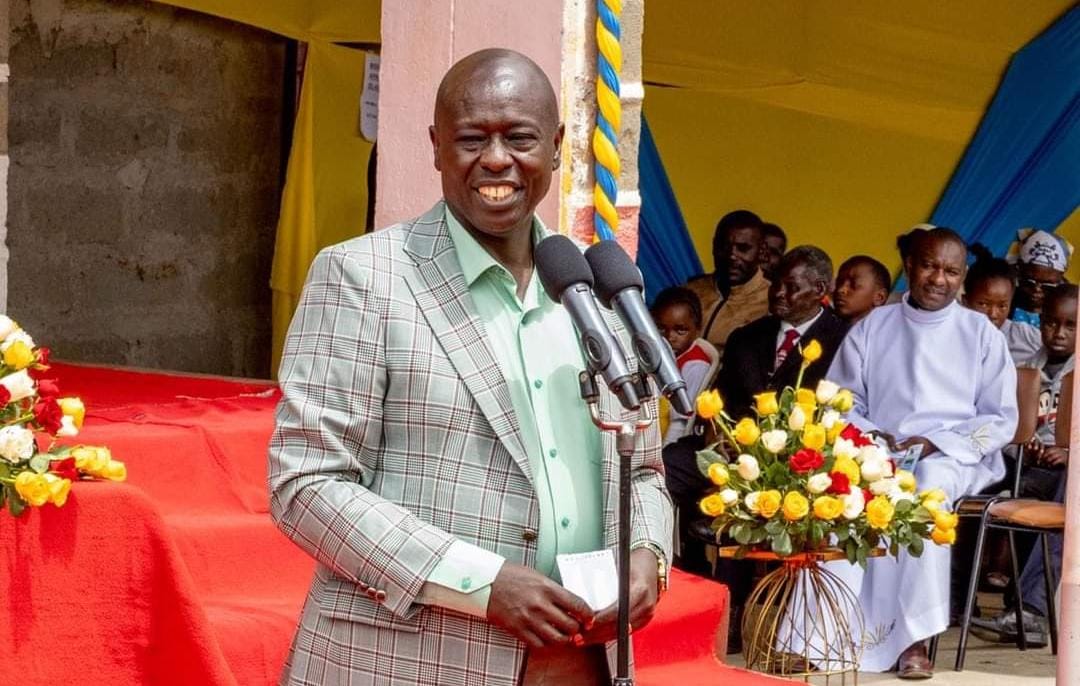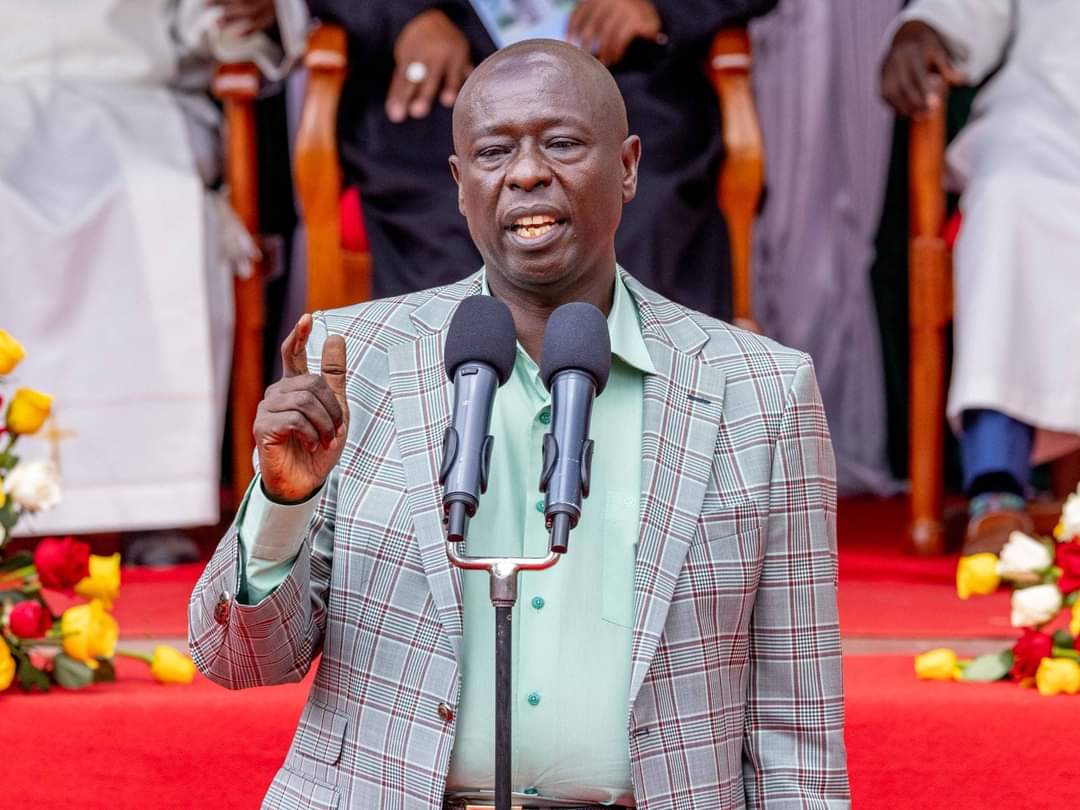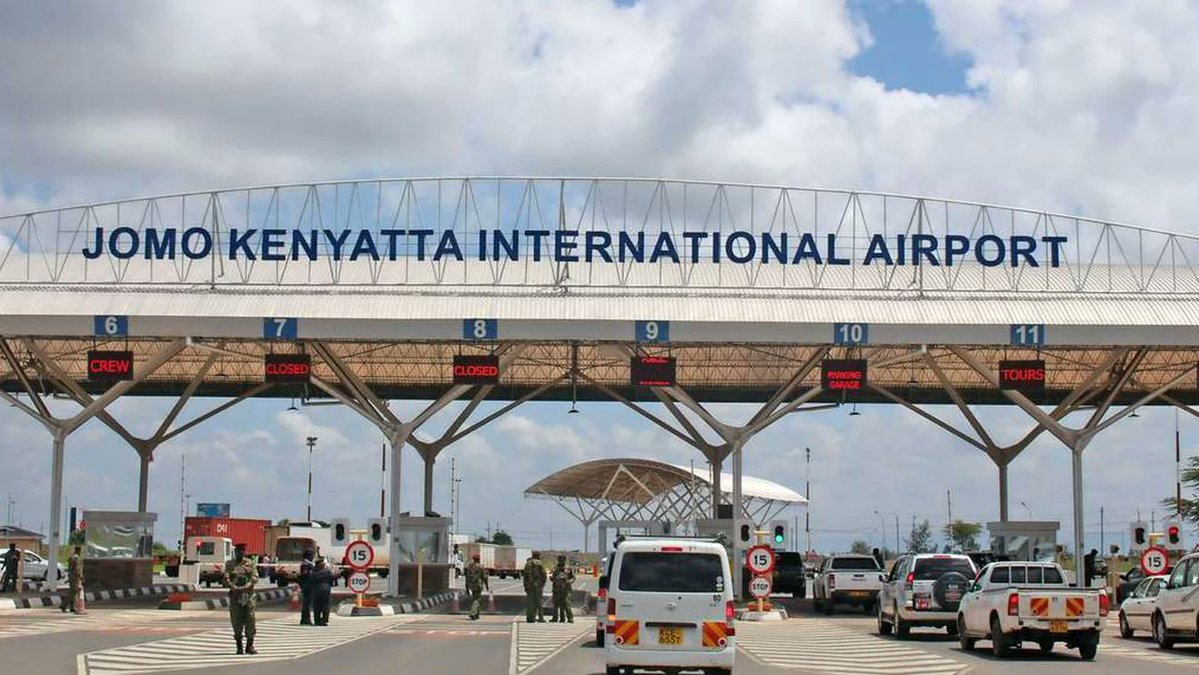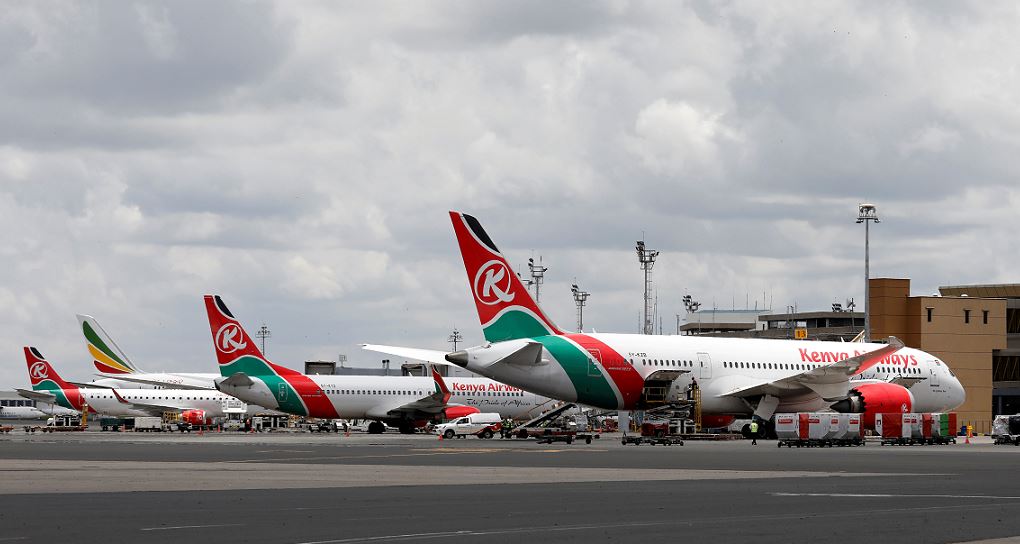Deputy President Rigathi Gachagua has fired a warning to security agencies against forceful evictions of traders and persons allegedly occupying public land without consulting the local security committees.
Speaking on Saturday October 14 in Nyandarua County, the deputy president cited recent attempts by Nakuru Kenya Railways police officers to demolish structures and evict traders in Ol Kalou town allegedly operating adjacent to the railway line.
He said illegal occupants must be shown alternative lands for settlement before being evicted.
"President Ruto and I made a promise that the Kenya Kwanza Administration is a government of common people and hustlers. We pledged that the people alleged to be illegal occupants must not be evicted without being shown alternative lands for settlement. If any of the police formations want to do work in another county, they must report to the local station for briefing. That is the standard operating procedure for National Police Service," said Gachagua.
Read More

The deputy president asked government officers to be sensitive about welfare of the public saying it was wrong to evict people at night.
"If there must be demolition, there must be a discussion and plan of the eviction. We must dignify Kenyan people and be sensitive to Kenyans. You cannot come at night, make people homeless or bring livelihoods to a halt. This Government is sensitive and people-centred. Let us be sensitive to what we do,” he stated.
At the same time, Gachagua said the government is committed to resolve long-standing challenge of the settlement by providing title deeds to land owners.
Gachagua also praised Chiefs and other National Government Officers for putting in an impressive fight in eradication of toxic alcohol and substance abuse.
He however warned the administrators over complacency and laxity in the government-ordered crackdown against illicit brews.





-1670665275.jpg)
